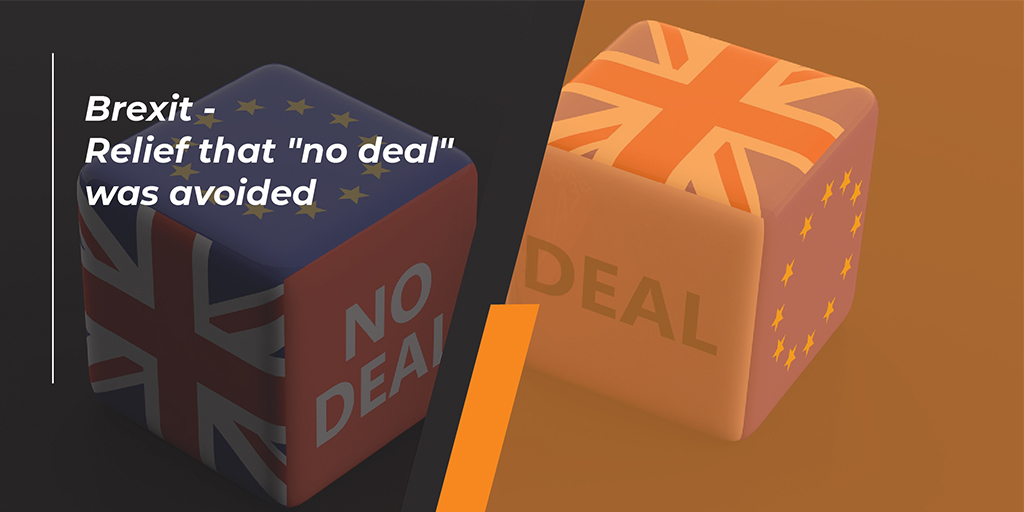
The Brexit deal between the UK and the EU reached completion just a week before the end of 2020. Businesses and consumers didn’t have much time to prepare for the changes that took place on January 1, 2021.
On May 19, 2020, the British Ministry of International Trade published the terms of the country’s new customs regime after the end of the transitional period of leaving the EU. The regime, called “The UK Global Tariff” aims to replace the current EU Common Customs Tariff and came into force on January 1, 2021.
The Department of International Trade says the new customs regime will favour the country’s economic development by making the process of importing goods into the UK easier and more competitive once the existing administrative barriers are removed.
The UK Global Tariff simplifies the existing complexity of EU rules, both for the classification of goods and for the customs rates that apply to each class of goods. The rates are converted in foreign currency from euros to British pounds. Changes are also made concerning the consolidation of some commodity groups, elimination of tariff variations, rounding of tariff rates to integers, and elimination of all rates of less than 2%.
“This is not the end, but the beginning of a wonderful relationship between the United Kingdom and our friends and partners in the European Union,”
said British Prime Minister Boris Johnson
The new customs regime expands the scope of free trade by eliminating import duties on 60% of goods. Good are now traded at World Trade Organization duty rates or at agreed preferential rates, where available. Their aim is to reduce business costs by increasing the competitiveness of British companies in the global market and increasing the diversity of product choices for British consumers. To protect local production, customs tariffs on imports of agricultural products, food, and cars are maintained.
The new UK ecommerce reforms put new VAT calculation and collections obligations on the UK and overseas sellers. VAT is now collected at the point of sale, not at the point of import, a change which, according to the British tax authorities, will ensure that goods from EU and non-EU countries are treated in the same way.

The new Brexit reforms also made online marketplaces responsible for the VAT on certain transactions by their sellers. This essentially means that foreign retailers sending goods to the United Kingdom are expected to register for VAT in the United Kingdom and report it to the UK tax office if the sales value is less than €150 (£135). This is supported by a simplified customs declaration and replaces the existing process of paying import VAT when the goods arrive at UK customs
At the same time, international shipping companies including FedEx and TNT have said they are levying additional charges on shipments between the UK and the EU. “This will reflect the increased investment we had had to make in adjusting systems to cope with Brexit which follows the changes in VAT rules” is their message on their site.
A government spokesperson said: “The new VAT model ensures goods from EU and non-EU countries are treated in the same way and that UK businesses are not disadvantaged by competition from VAT-free imports. The new system also will address the problem of overseas sellers failing to pay the right amount of VAT on sales of goods already in the UK at the point of sale, raising an anticipated £300m every year. Many EU businesses which currently sell goods to UK customers have already registered for UK VAT under existing rules and HMRC is working very closely with those who haven’t to ensure they can comply with the changes.”
Many businesses are ending their UK delivery coverage or pausing it, orders will be possible as soon as their UK VAT registration and the overall process of selling to the UK post-Brexit is sorted out. Meanwhile, the shipping companies that have taken the third option (for example TNT) have said they are now imposing a surcharge of £4.31 on all shipments between the UK and the EU and they are “updating” their charges.
With the trade agreement, Britain will enjoy some of the same benefits it had as an EU member. The deal has been “provisionally” implemented after the UK left the single market on 1 January 2021 but the agreement still needs approval from the European Parliament, which is expected to come into force on 28 February.
ecommotors services can help you navigate the new world of Brexit regulations, and our platform allows you to automate these new rules.
Subscribe to the ecommotors newsletter on the home page to stay up-to-date on the latest important information or contact us to discuss your growth and expansion plans.

















































